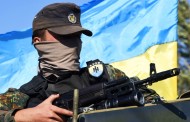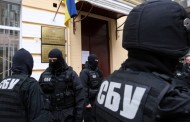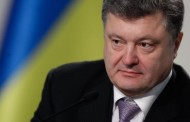Washington must have derived the first lessons from the defeat at Debaltsevo, with which a series of lengthy analytic essays had been concerned [1-6]. We should expect changes in the military system of Ukraine. The fact that the tactic of deployment of 200-300-strong units is going to be introduced within the framework American training program for Ukrainian military, i.e., the bet will be placed not on brigades, but on battalion-type formations, can be the evidence of such changes. Notably, private punitive battalions serve as the basis for such formations in Ukrainian military machine. The fact that the stake has been put on them is proved by the following: recently such formations obtained cultural and historical substantiation. They have been found out to be Ukrainian analogue of capers – independent armed formations engaged in looting the territories of the enemy of the state that had issued a license for them to do so [3]. According to the leading expert of American research center Democracy Lab Alexander Motyl, these battalions, financed by private structures, are not undermining the foundations of the Ukrainian state; on the contrary – they are defending it [3]!
Nevertheless, the analysis of the caper phenomenon shows that in the case of Ukraine they are not defending, they are threatening its statehood. Capers, carrying out military campaigns under the flags of Britain, France and the Netherlands against the Spanish Empire, retained a sufficient degree of independence. Thin is that freebootery is a product of The Frontier: the period of development of the dependent territories, during which the central power in situ was weak and needed additional support. Thus, from the historical point of view the freebootery of the 16th – 18th century was a natural preoccupation on the way of building a vertical of power in the colonies. In the case of post-Maidan Ukraine the situation is quite the opposite: the existence of half-independent in parallel with the state structures is the evidence of threatening weakness of the state apparatus, which Washington is not striving to improve.
By the way, Alexander Motyl is the representative of Ukrainian Diaspora in the USA and Canada, which is in fact the “brain center” of Ukrainian Nationalism. Although the most important factor is that Alexander Motyl is the leading expert in Ukrainian issues of Foreign Affairs magazine, the materials of which originate from the US Department of State and are sponsored by it – the body in charge of the external policy if the USA. This testifies to the fact that Washington’s aim is not to liquidate the castigator battalions, but legitimize them, not as much on the level of legislation, as on the cognitive level. At that the target group of this impact is not the cultivated by the US psycho type of a “Great Ukie”, but the still amorphous mass of the average citizens brought up in the Soviet time and, as a result, possessing encyclopedic education, which included the knowledge of world cultural heritage. Thus, Washington’s apology of the militant wing of Ukrainian nationalism leads to further dismantling of the remnants of Ukrainian statehood.
Maksim Isayev
Sources:
- Hudson J. State Dept. Says ‘Land Grab’ in Debaltseve Must Be Accounted For // Foreign Policy. – February 23, 2015 https://foreignpolicy.com/2015/02/23/state-dept-says-land-grab-in-debaltseve-must-be-accounted-for/(as of: 30.03.2014).
- Foreign Policy: США должны усвоить урок, который преподали ополченцы под Дебальцево // Деловая газета «Взгляд». – 20 марта 2015. http://vz.ru/news/2015/3/20/735575.html (as of: 30.03.2014).
- Motyl A. Ukraine Doesn’t Have a Warlord Problem // Foreign Policy. – March 26, 2015. http://foreignpolicy.com/2015/03/26/ukraine-doesnt-have-a-warlord-problem-russia-donbas/"http://foreignpolicy.com/2015/02/18/after-debaltseve-what-comes-next-in-the-fight-for-eastern-ukraine-putin-poroshenko/">http://foreignpolicy.com/2015/02/18/after-debaltseve-what-comes-next-in-the-fight-for-eastern-ukraine-putin-poroshenko/ (as of: 30.03.2014).
- Foreign Policy: США должны усвоить урок, который преподали ополченцы под Дебальцево // Деловая газета «Взгляд». – 20 марта 2015. [Электронный ресурс]. http://vz.ru/news/2015/3/20/735575.html (as of: 30.03.2014).
- Standish R. After Debaltseve, What Comes Next in the Fight for Eastern Ukraine? February 18, 2015http://foreignpolicy.com/2015/02/18/after-debaltseve-what-comes-next-in-the-fight-for-eastern-ukraine-putin-poroshenko/
- Исаев М. Исламский фундаментализм и украинский национализм: общие черты и причины поддержки внешними силами // Геополитика. Информационно-аналитическое издание. – 2014. – Выпуск XXV: Терроризм. – М. – С.74 –88 http://www.geopolitica.ru/sites/default/files/geopolitikan25.pdf (as of: 30.03.2014).




Recent Comments